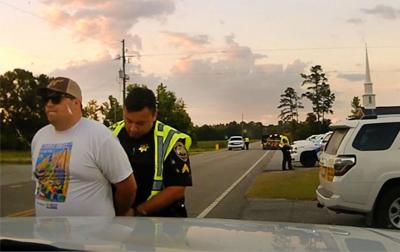Love him or hate him, former Charleston City Councilman Harry Griffin has been a great teacher.
When his call to audit the mayor he was running against squandered at least $50,000 of public money and turned up no illegalities (or new information), he taught voters about the folly of using otherwise effective oversight tools for purely political purposes.
When he refused to take a Breathalyzer test at a DUI stop, he demonstrated yet another massive loophole in South Carolina’s driving under the influence law.
And now more than three dozen ethics charges have turned him into a poster boy for one of the central flaws in South Carolina's Ethics Act: its overreliance on citizen enforcement.
We’re certain that Mr. Griffin isn’t the only public official in South Carolina — or even in Charleston County — who might have converted campaign donors' money to personal use during the past seven years. The reason he's facing 39 charges and other officials who did the same things aren’t is that somebody filed a complaint against him. As The Post and Courier’s Caitlin Byrd reports, the State Ethics Commission charged him with hiding donations from the public and converting more than $11,000 in donations — throughout his four-year term and ranging from $4 to $1,500 — to personal use.
Although a hard-fought provision of the ethics law allows the Ethics Commission to bring charges against candidates and public officials without outside complaints, it rarely does so on what it considers substantive matters. Therein lies the biggest problem: The state depends on citizens knowing what the law requires, combing through candidates’ campaign disclosure reports, spotting something that doesn’t add up and then filing a complaint.
And even if we had enough volunteer watchdogs to review every report, they wouldn’t catch all the violations, because some are simply not findable with the information politicians have to provide. Those violations only become apparent when someone can look at a candidate’s campaign checking account and his personal bank accounts. Even then, there’s no guarantee someone would find everything, but the chances are much better.
Mr. Griffin’s case is illustrative: The citizen’s complaint said he used his City Council campaign account to buy social media ads promoting his run for mayor, in violation of state law. But when the Ethics Commission investigated — presumably subpoenaing his personal and campaign accounts and perhaps questioning him — it found all those donations he allegedly didn’t report as well as donations that he allegedly deposited into his personal account. It didn’t even charge him with the violation in the complaint; in other words, the citizen’s complaint simply triggered an investigation, which turned up larger problems.
The current enforcement system means public officials are likely to get away with using secret campaign donations from special interests to buy electronics or vacations or cars or whatever they want. We made that illegal because it multiplies the conflicts of interest that are inherent in even legal campaign donations.
The best way to fight any sort of crime is to prevent it, and the way to prevent campaign violations is to make it more likely that violators will get caught and will face stiffer penalties if they do. The second part of that equation involves higher fines, yes, but more importantly barring people from holding office again if they’re convicted.
The first part means giving regulators better tools to catch violations, rather than having to rely on volunteer watchdogs: Require candidates to file nonpublic copies of their bank statements with every disclosure report. Require the Ethics Commission to check those bank accounts against the campaign reports. And give the commission the staff to do that.
If that’s too expensive, require random audits, which can be nearly as effective at deterring violations and result in almost as much compliance if the penalties are high enough to make candidates afraid of what might happen to them if they get caught.
Click here for more opinion content from The Post and Courier.












